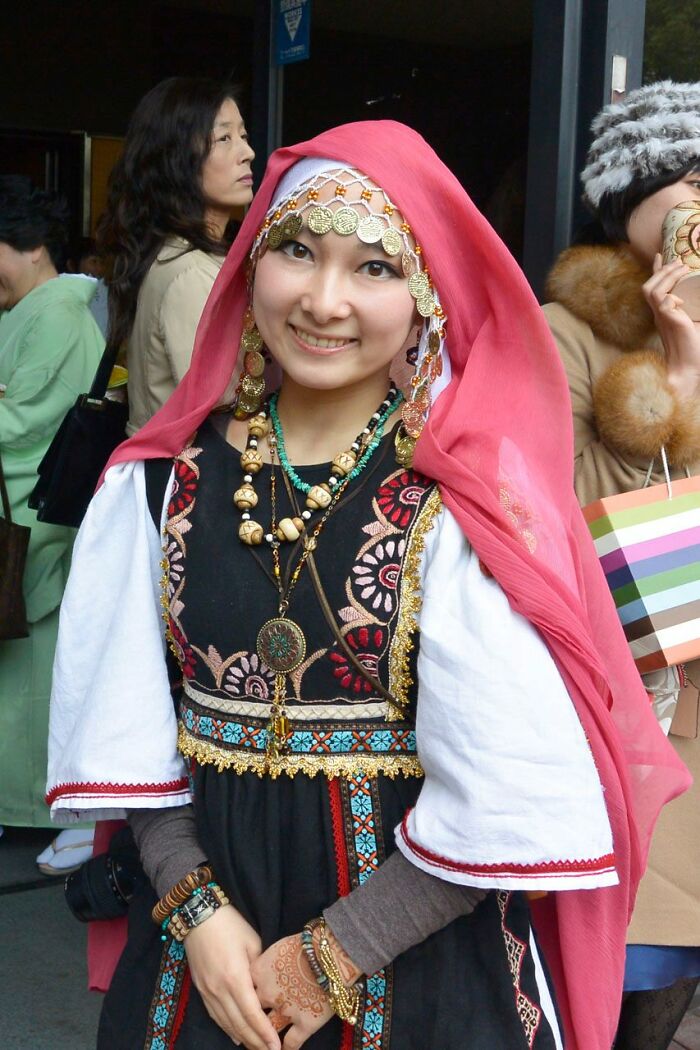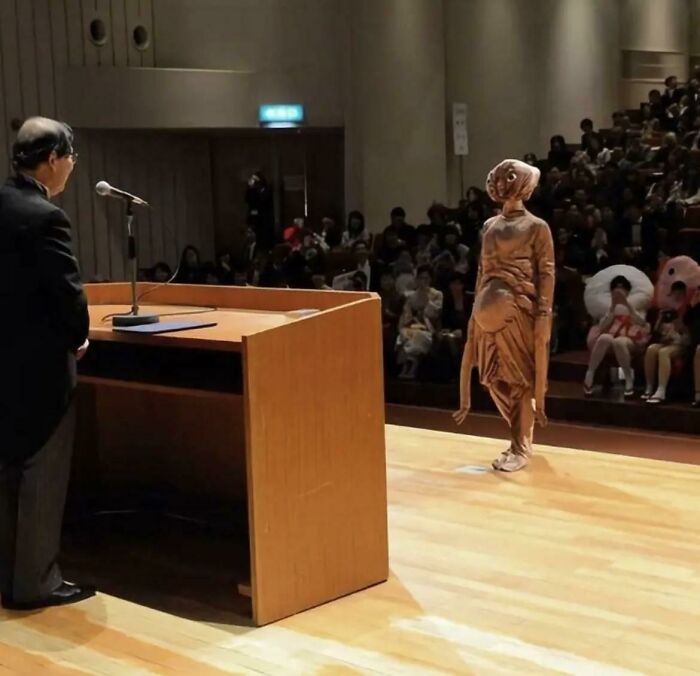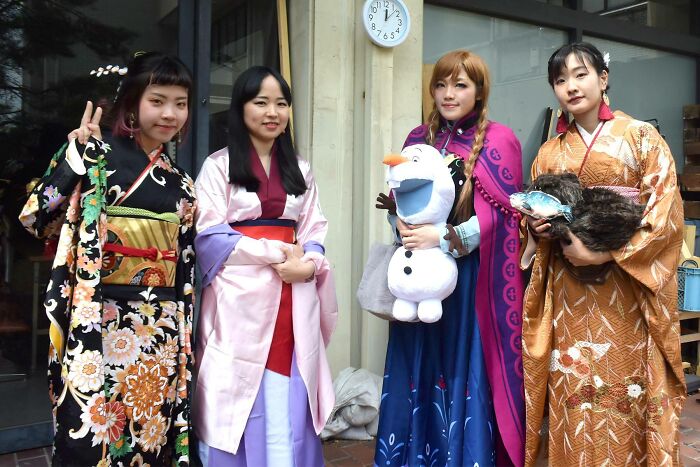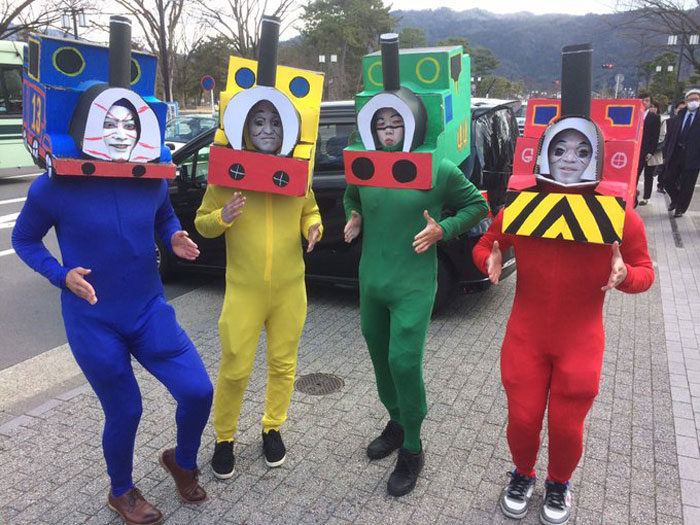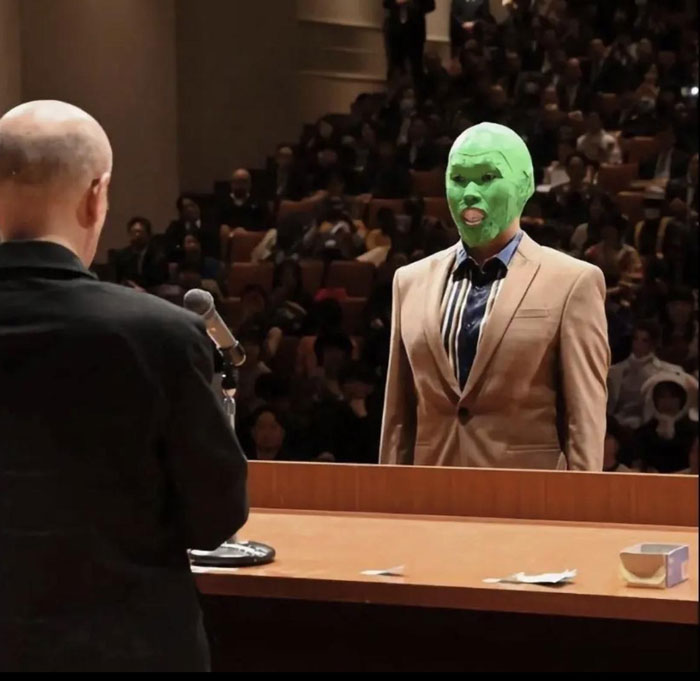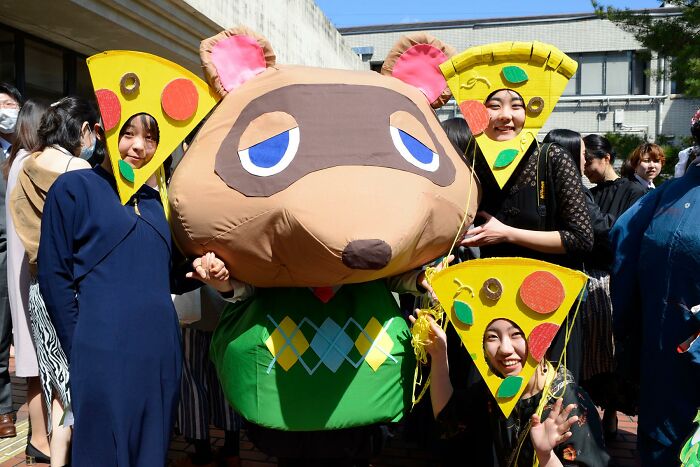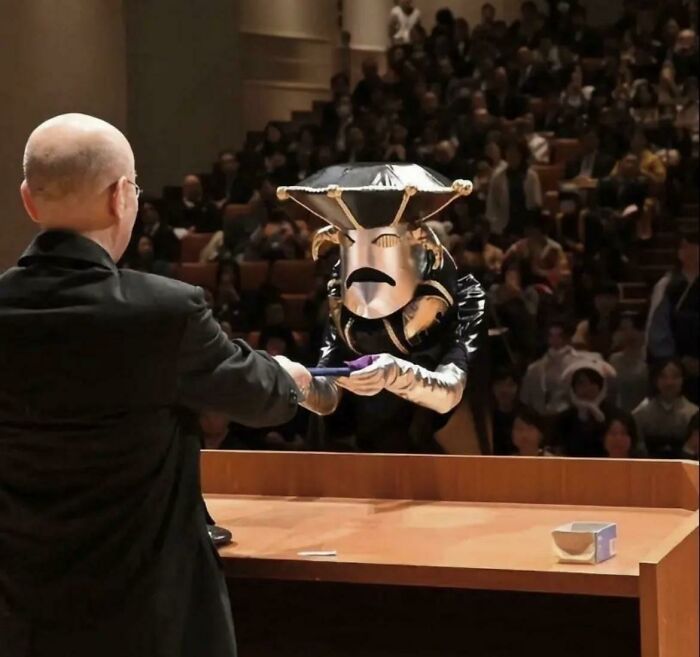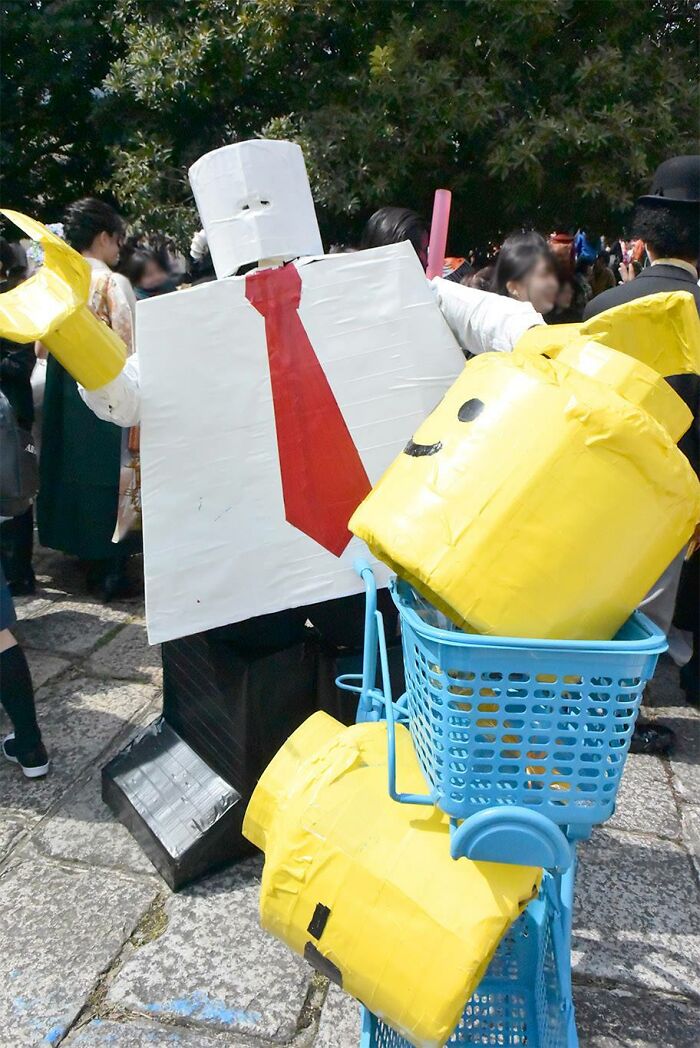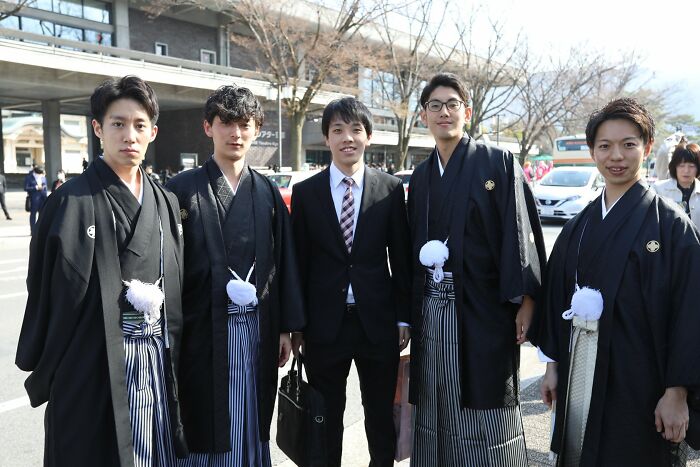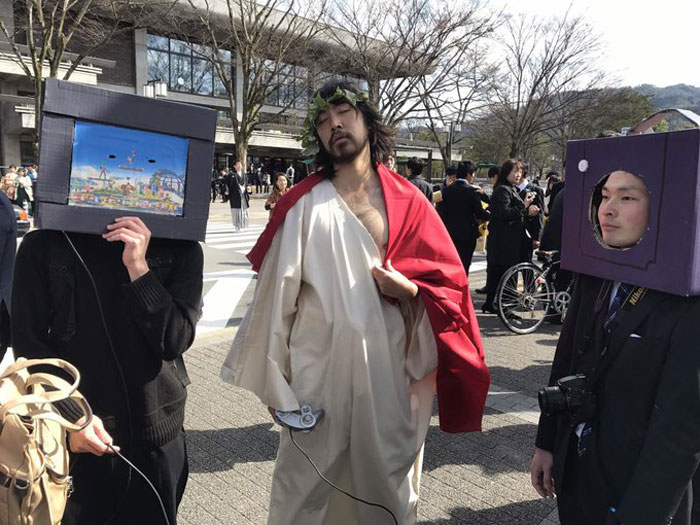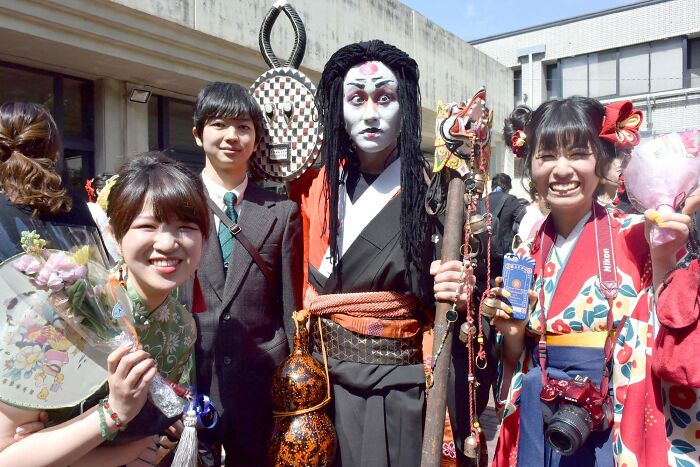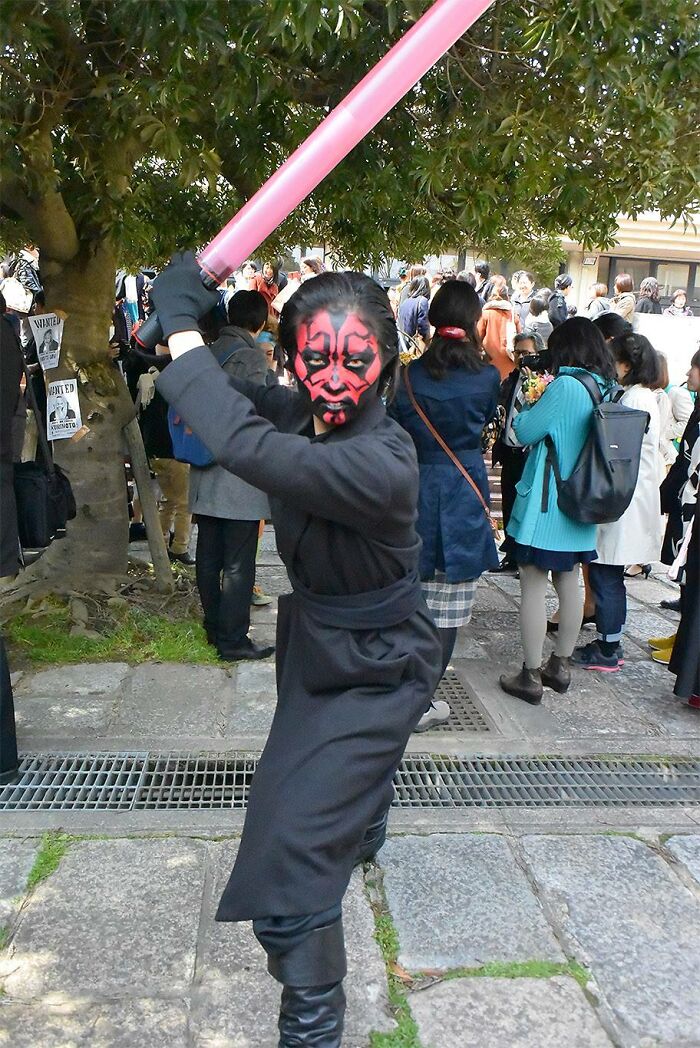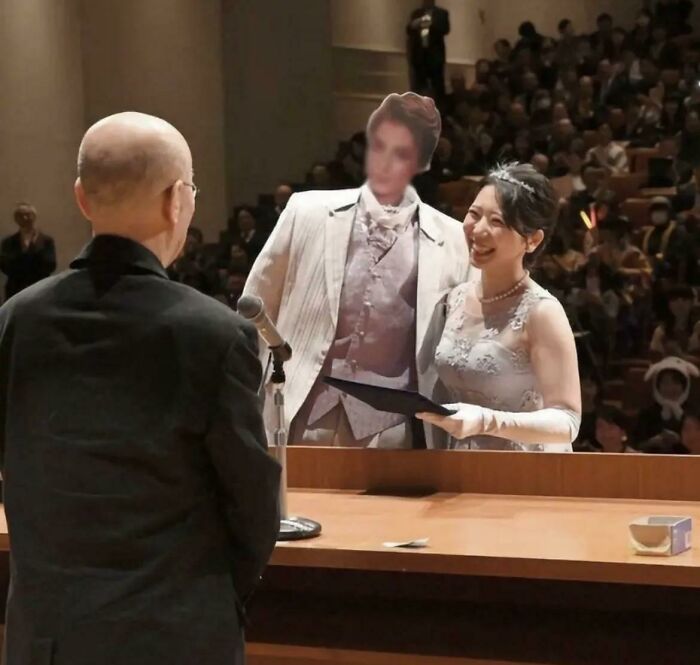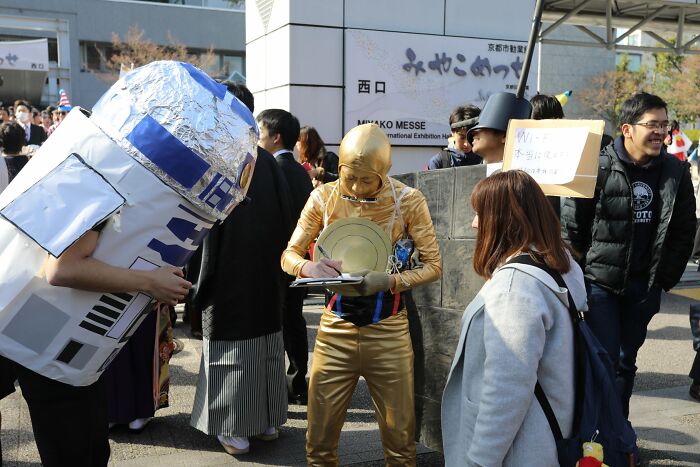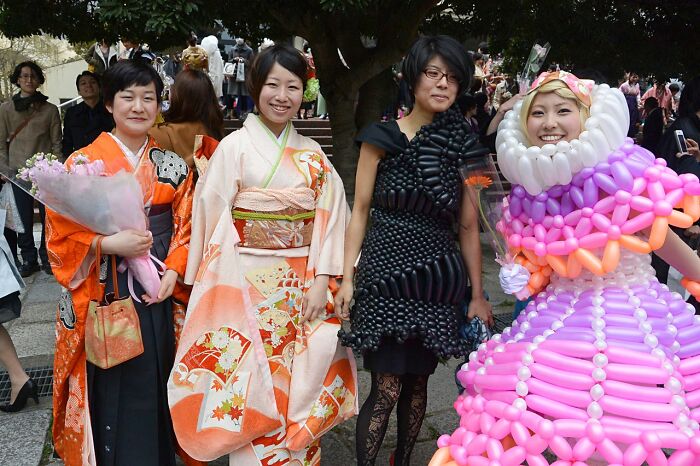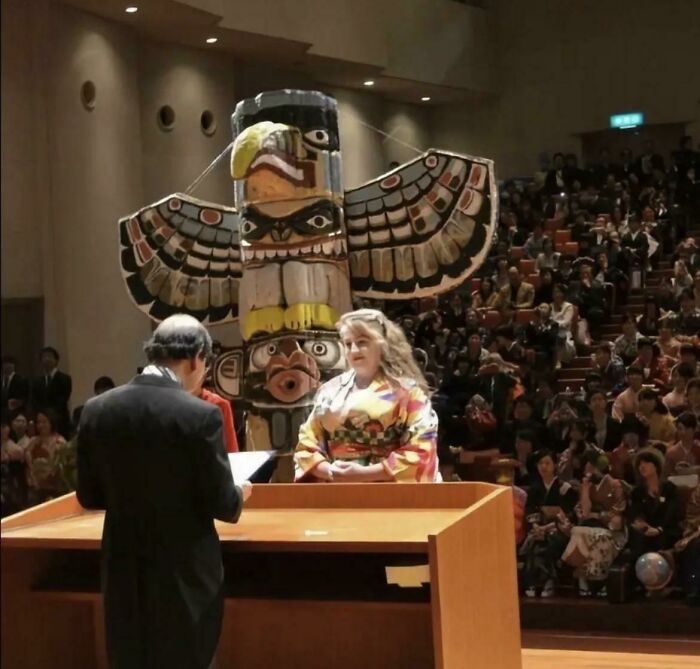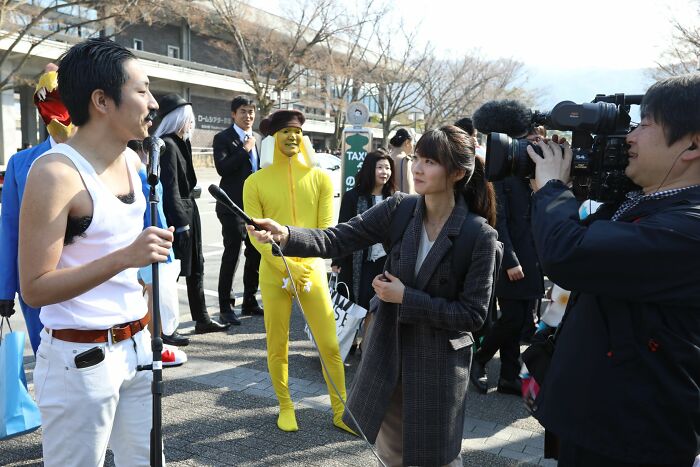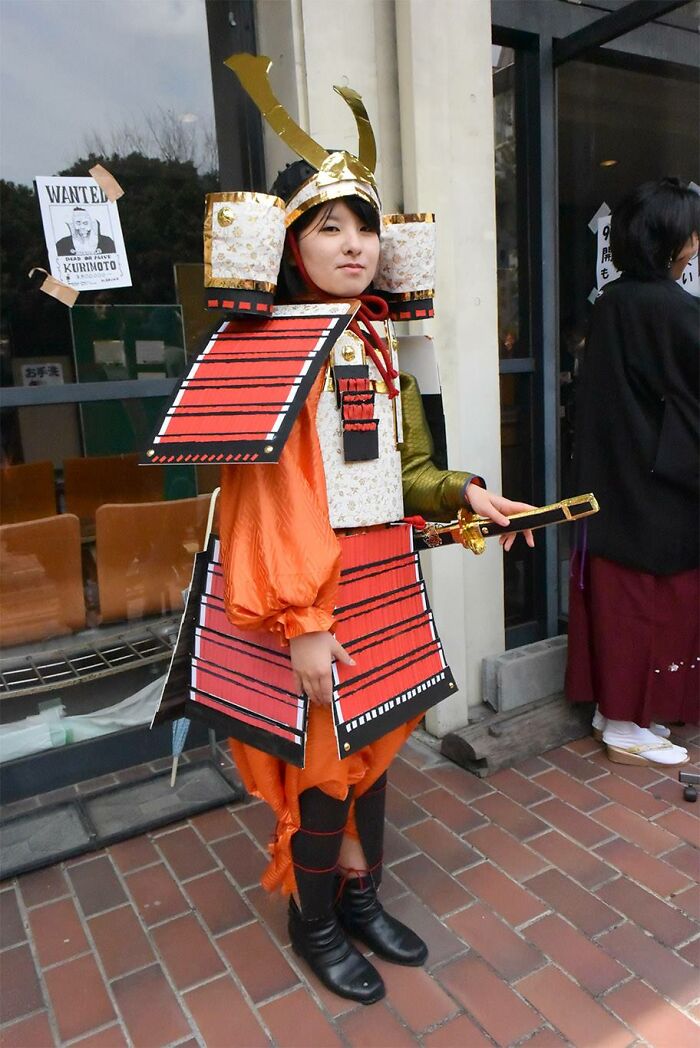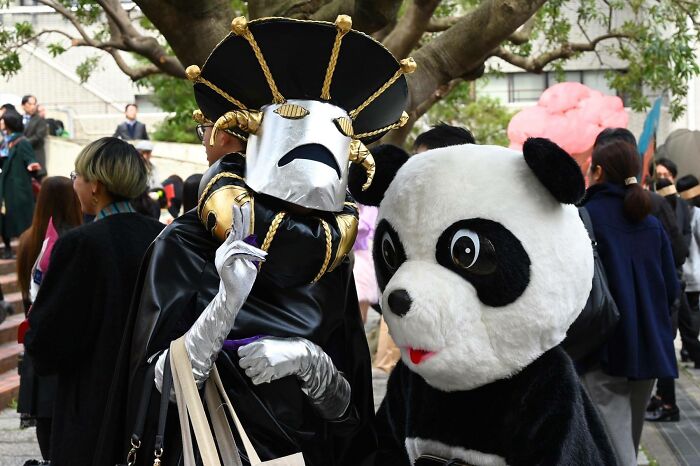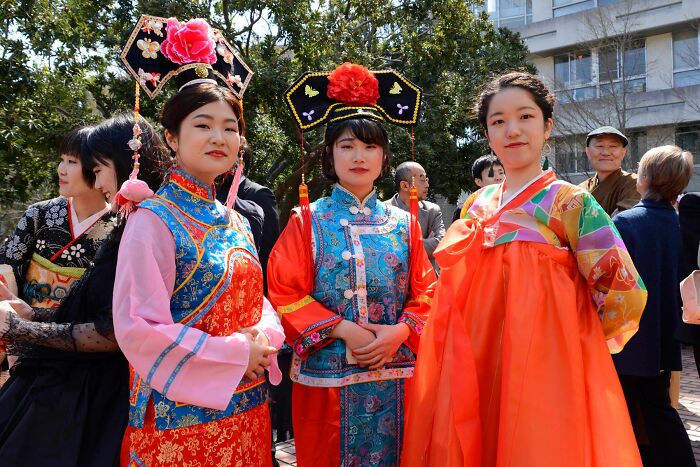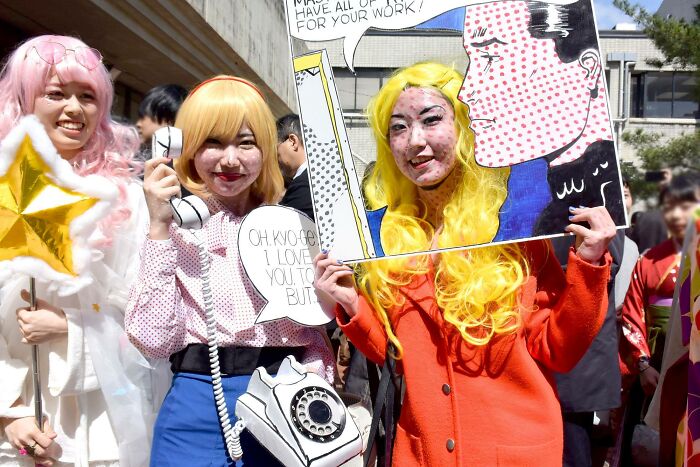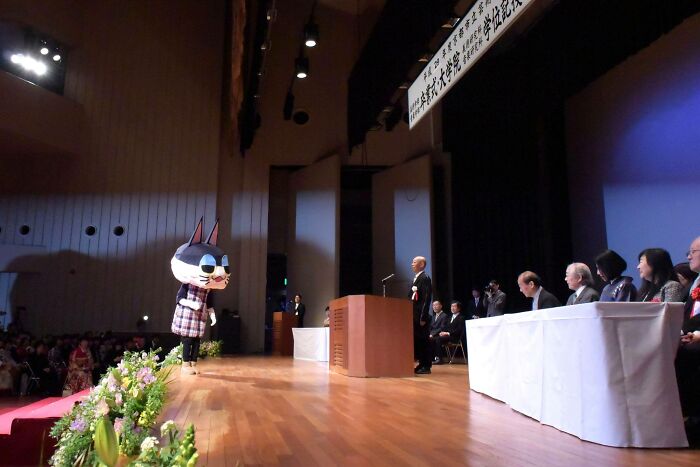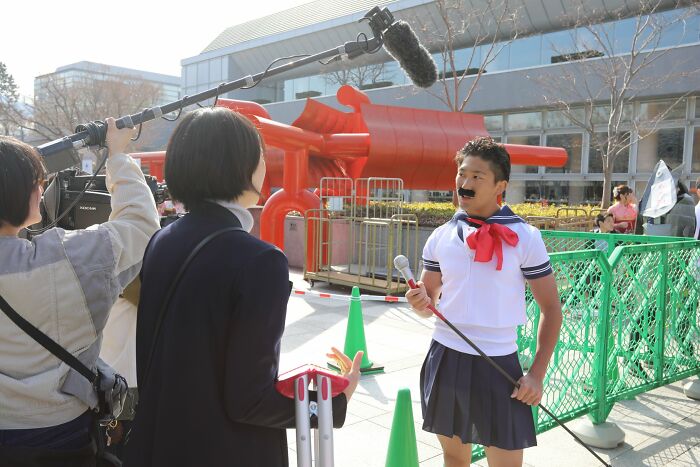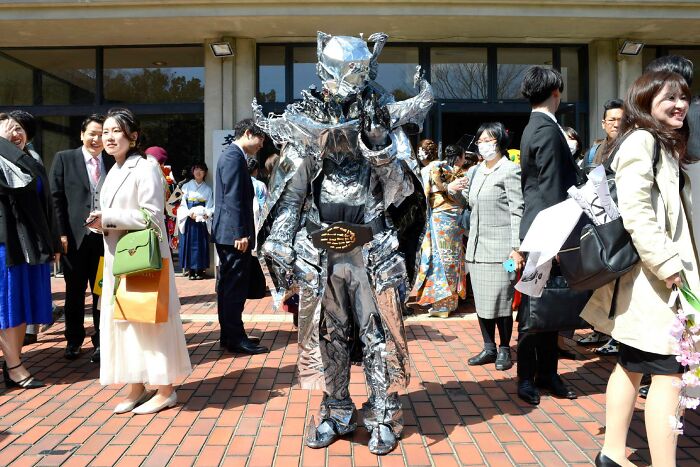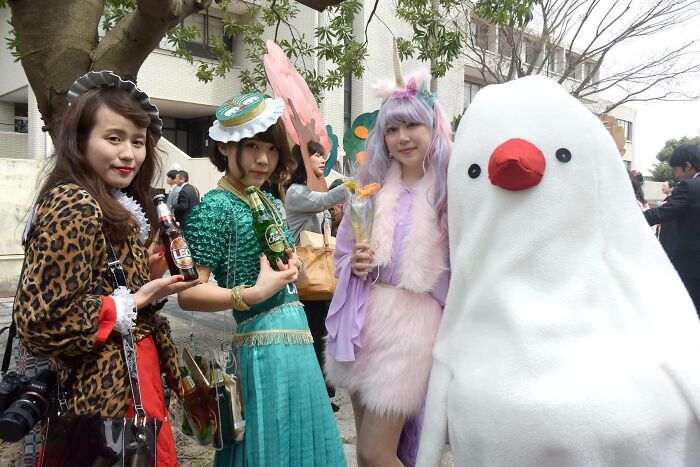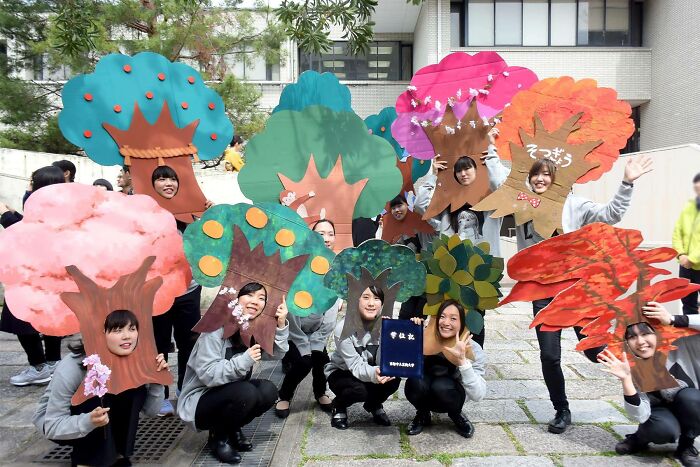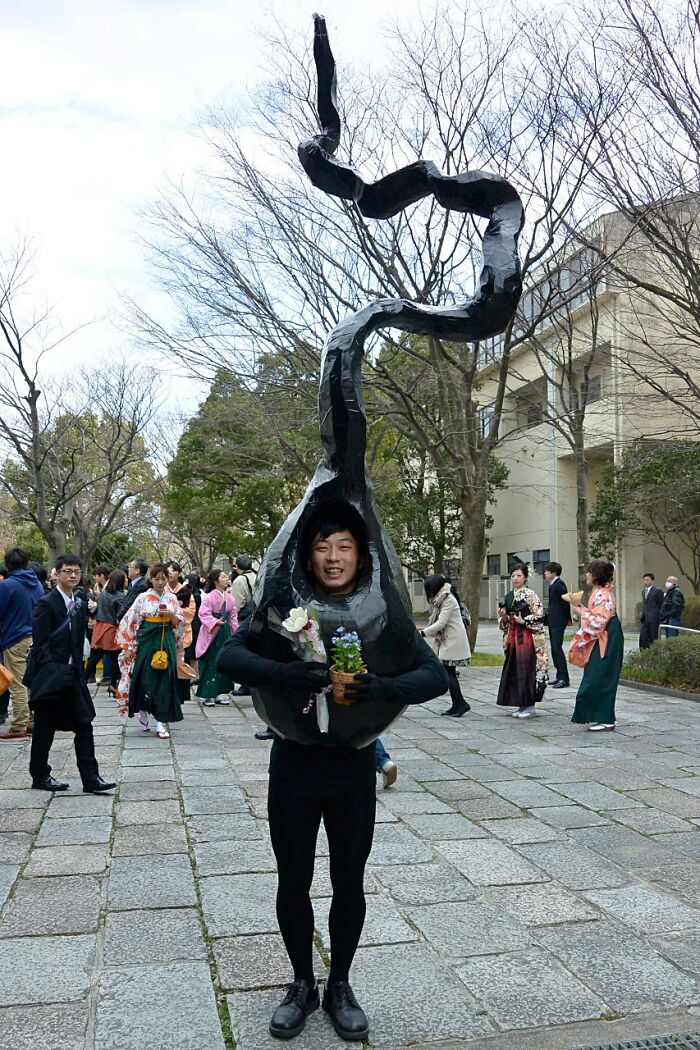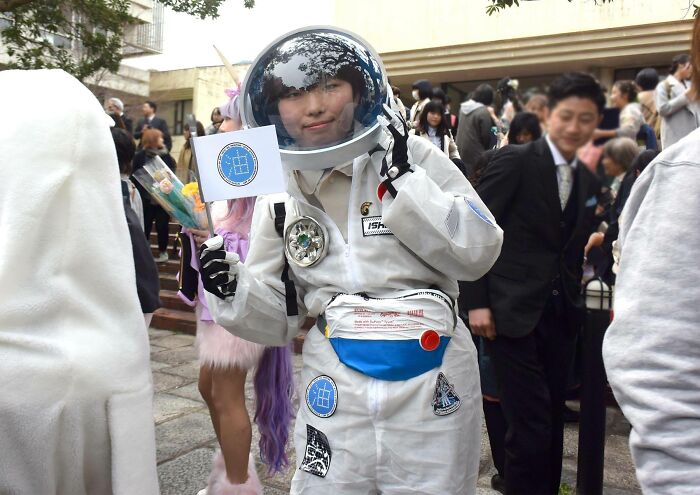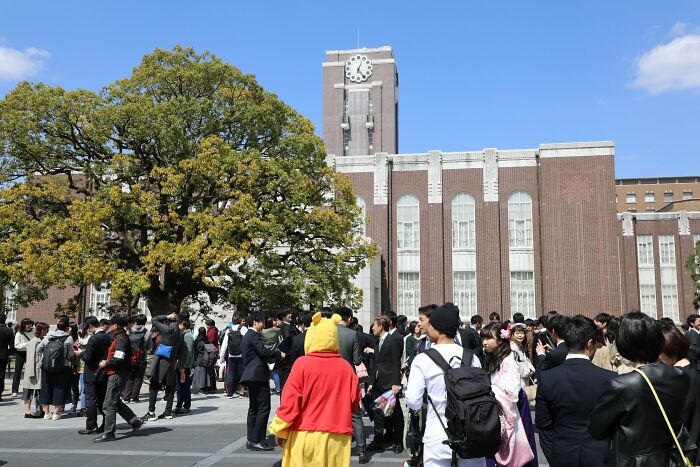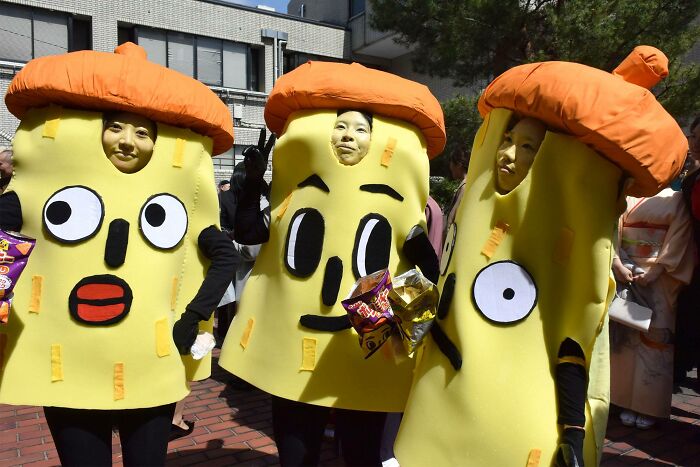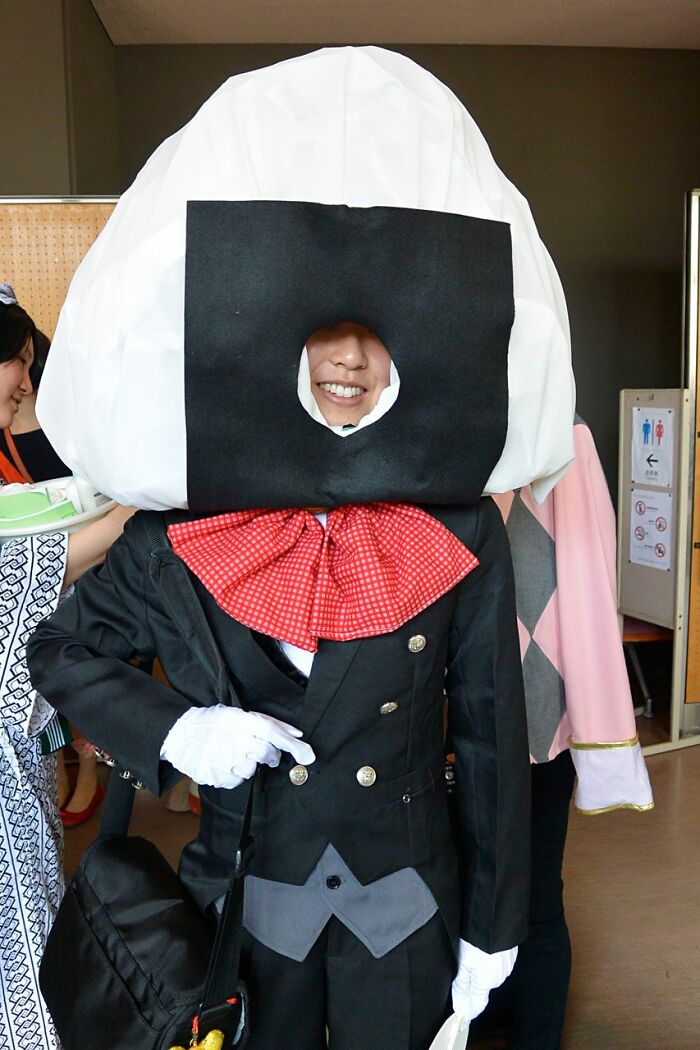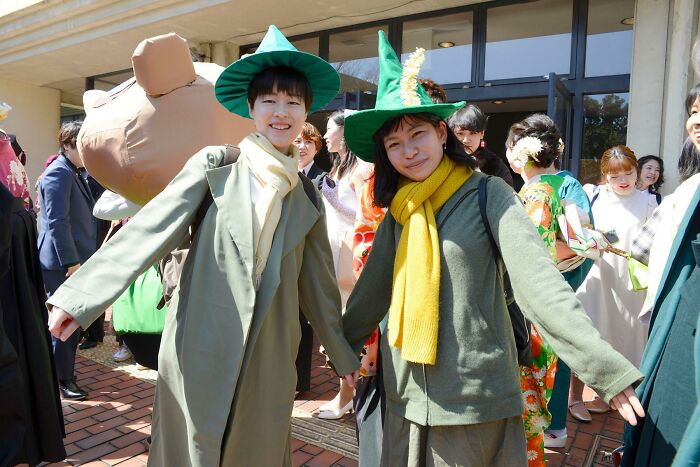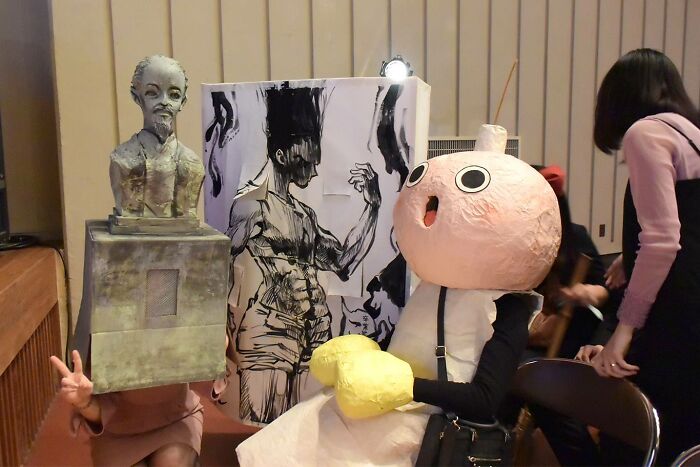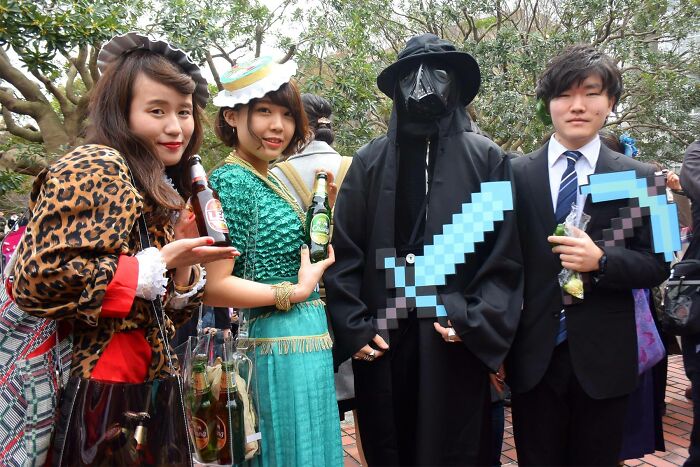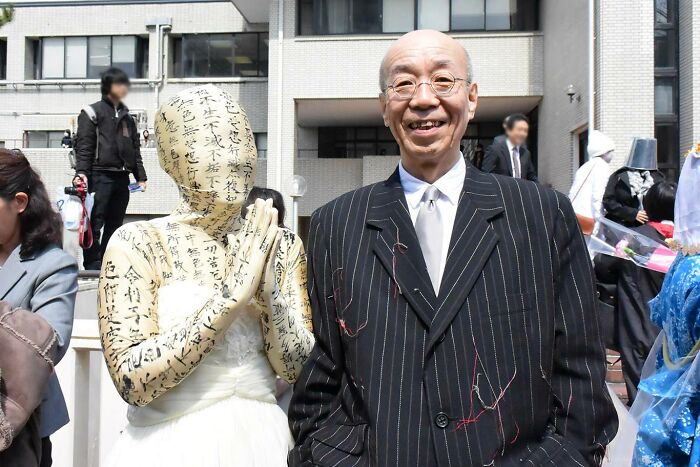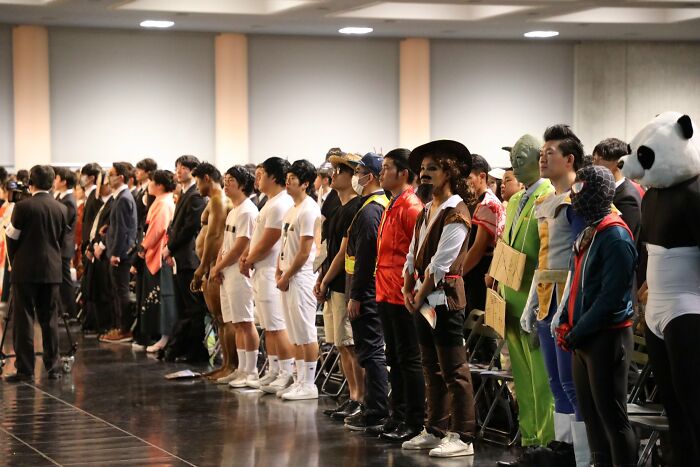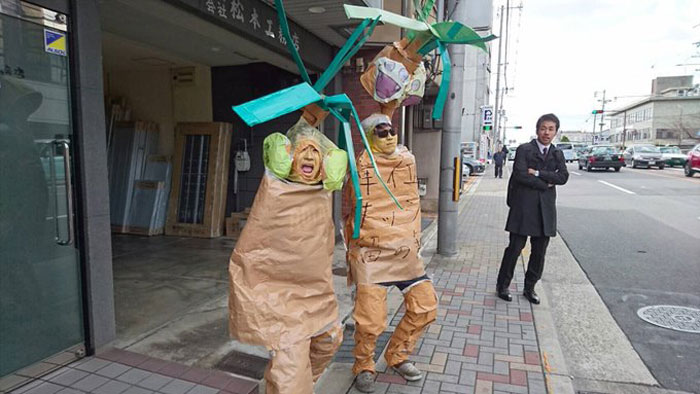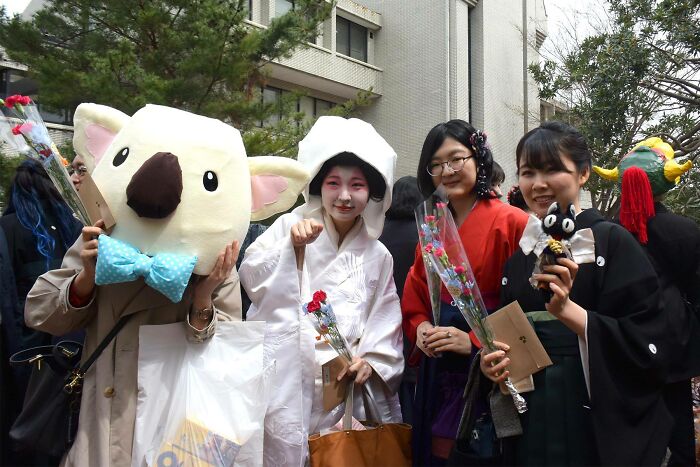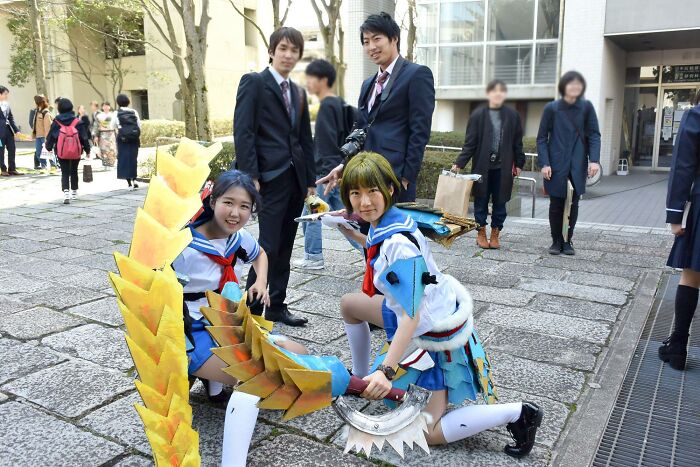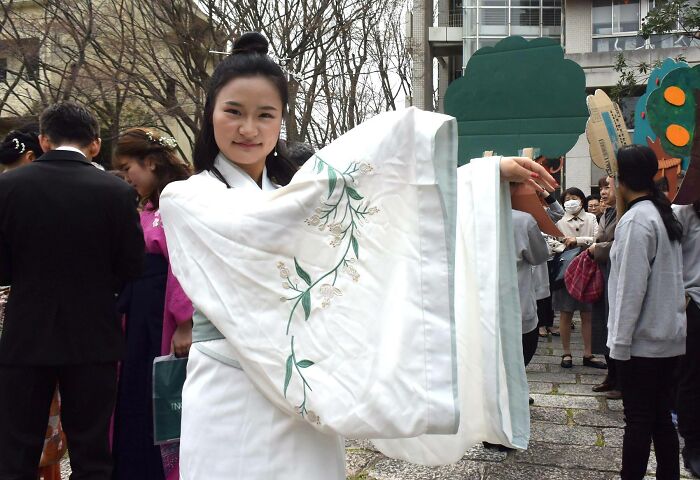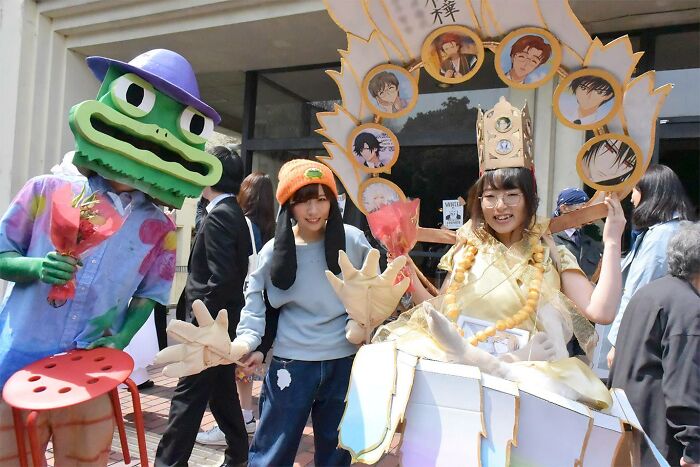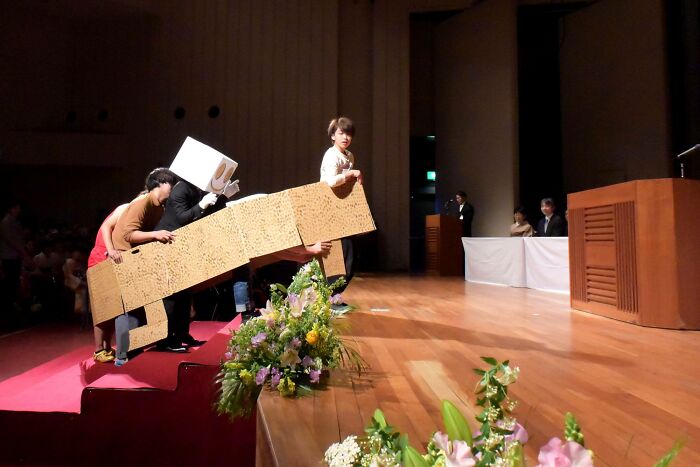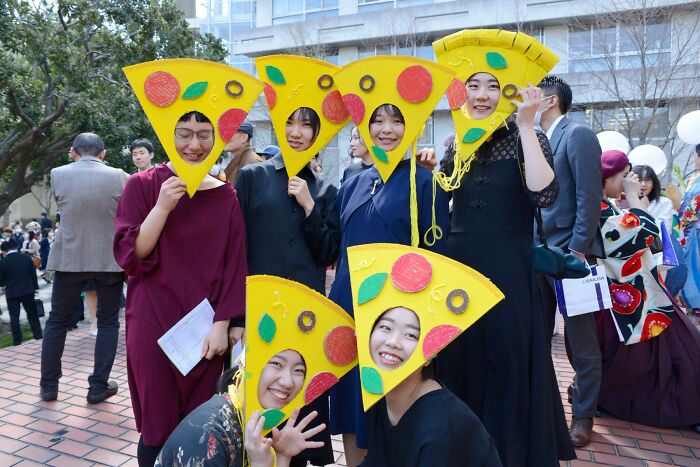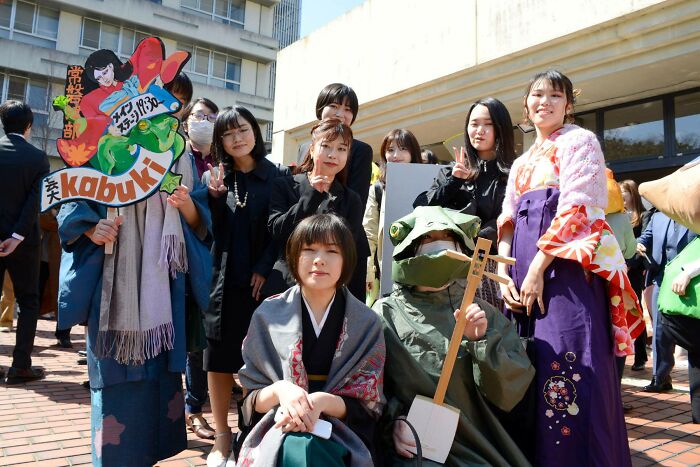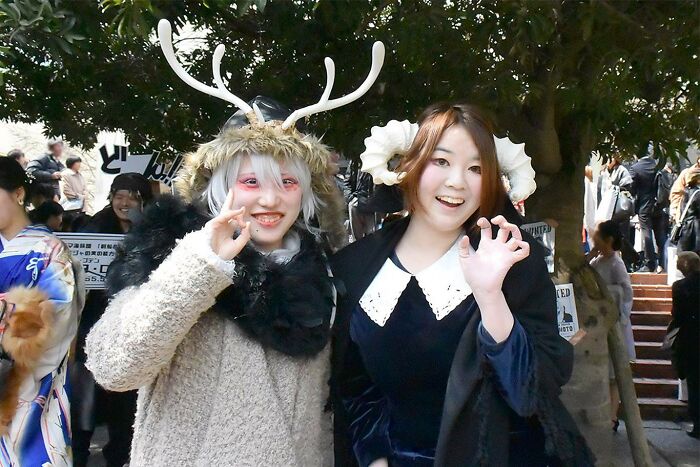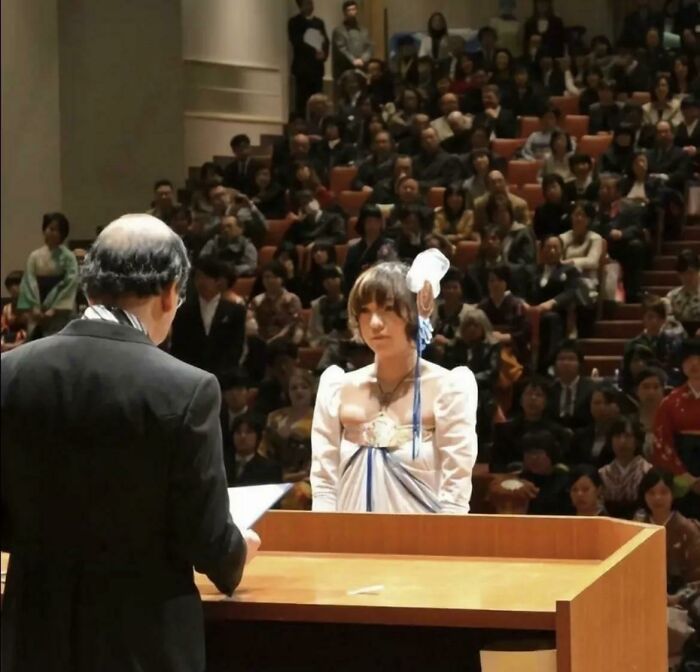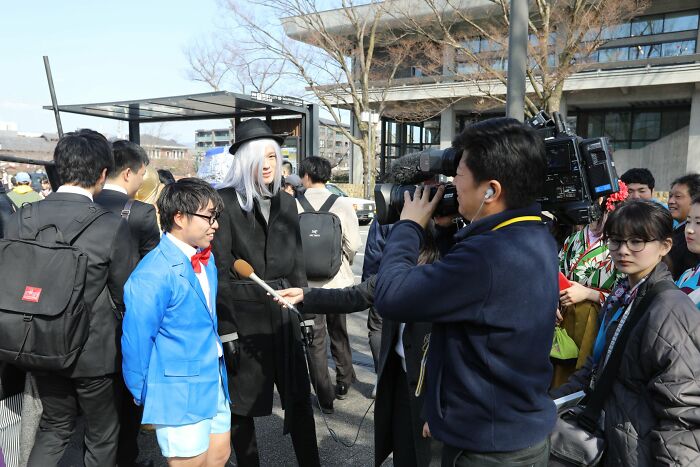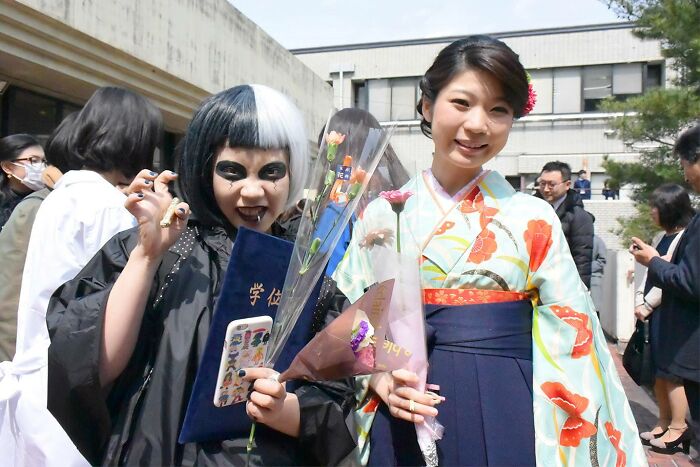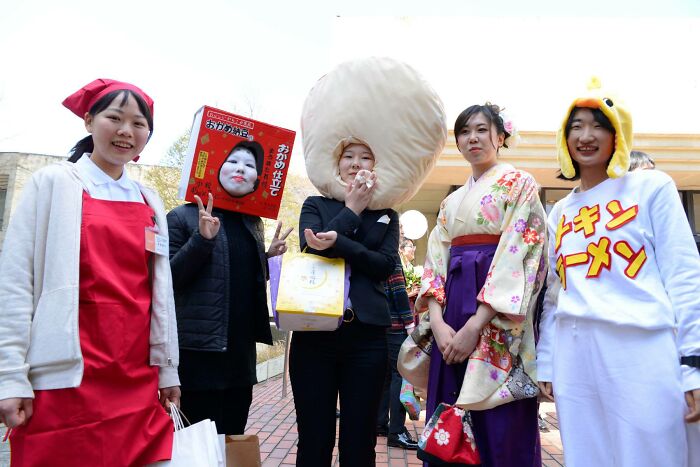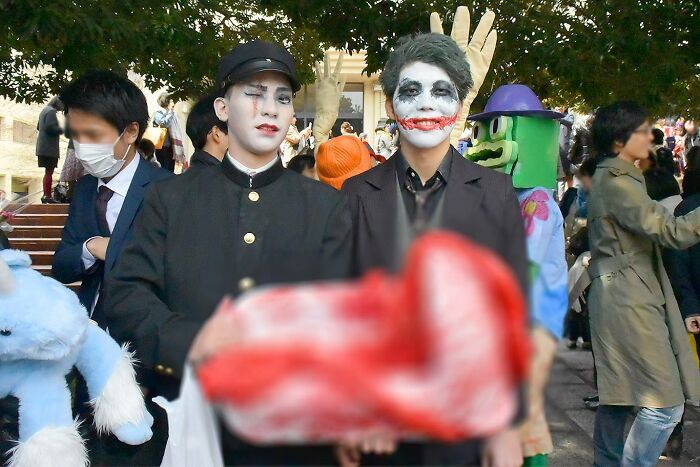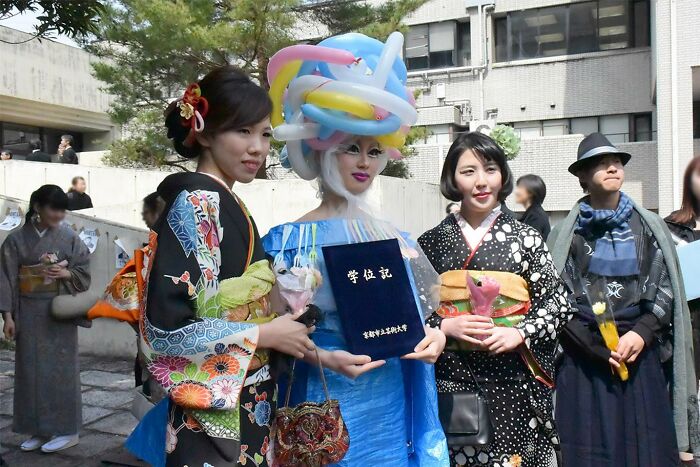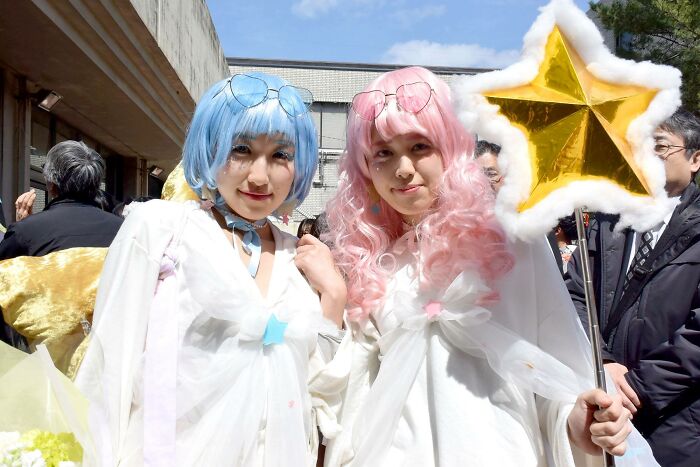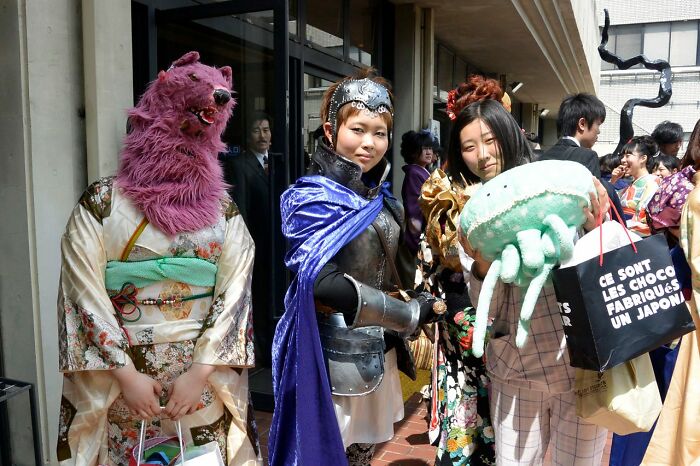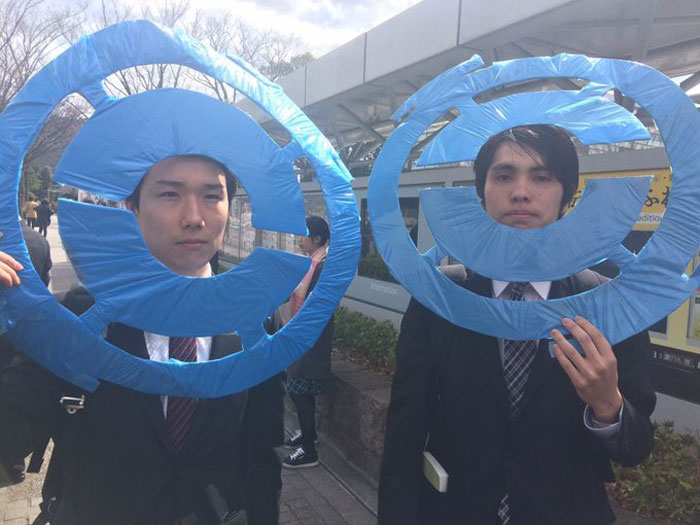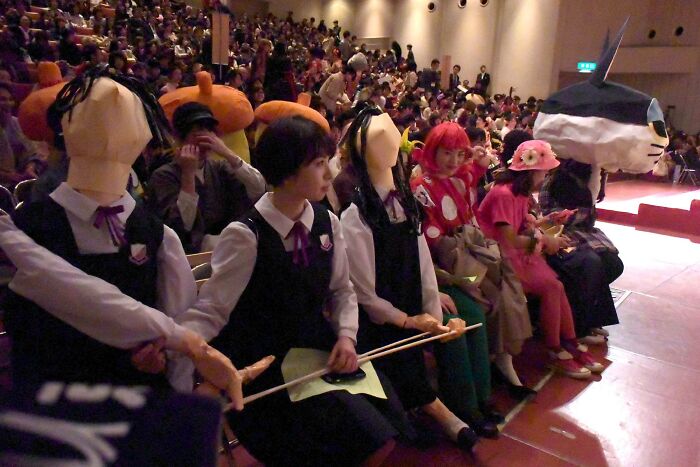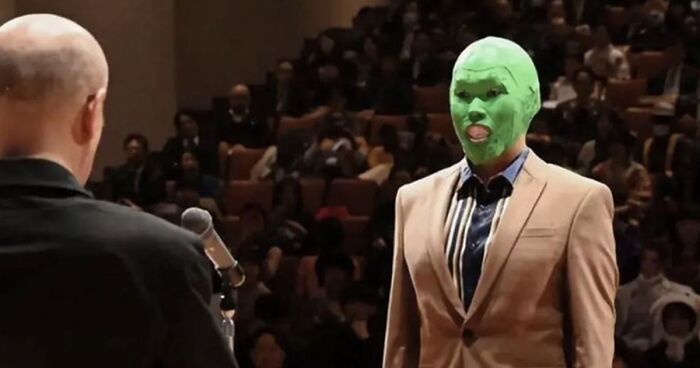
Kyoto University Permits Students To Put On Anything They Want For Graduation, And Here Are 35 Of The Most Brilliant Costume Ideas
InterviewA graduation ceremony at a university is one of the most memorable days in the life of anyone who has ever been a student. We think we will not be mistaken if you also remember your own ceremony - solemn speeches, joy that the years of study are already behind, sadness from the upcoming parting with classmates, strict elegant suits and dresses...
Wait, wait... are we sure we're talking about a graduation ceremony? It strongly depends on the college. For example, at the University of Kyoto, one of the largest in Japan, the second oldest after the University of Tokyo, there is a long tradition that annually gathers not only relatives of students, but also hundreds of photographers and journalists for the graduation ceremony.
There is a good reason for this - the University of Kyoto, in conjunction with the Kyoto City University of the Arts, officially allows its students to wear whatever outfit they want to their graduation. Pikachu or Darth Vader? You're welcome! Power Rangers or a couple of funny zombies? With great pleasure! Samurai, Mona Lisa, or even the Teenage Mutant Ninja Turtles? We just said - anyone or anything!
Bored Panda has collected for you a selection of the best, most creative, ridiculous and funny outfits from Kyoto University graduation ceremonies over the years, so please feel free to scroll back to the end of this list, mark your favorite submissions and if you are still a university student, try suggesting the same tradition in your college. Who knows, maybe you too will go down in history?
More info: University of Kyoto
This post may include affiliate links.
Usually students in Japan wear suits, dresses, or traditional women's hakama kimonos for their graduation ceremony, but Kyoto University has gone its own way, and this path cannot but be admired. After all, universities have always, since ancient times, been centers of creative thinking - so why not give graduates the opportunity to express themselves after graduation?
"The university has a long tradition of being kind of anti-authoritarian. So I'm guessing the roots go back quite a long time, though the university officially doesn't condone it," says David Hajime Kornhauser, director on global communications of Kyoto University, with whom Bored Panda got in touch. "I didn't wear a gown at my graduation in America. So for me, it's a rather natural thing, actually. And in other words, it's kind of a personal preference, do people want to be sort of traditional or are they just doing something to express themselves in some other way or not?"
"It seems that for a long time, students at this university have chosen to just be whatever they want to be. But it's actually not a large number of people. I mean, it's mainly, I would say, it isn't even 10%. And they stand out because they try to sit up front. So it looks like there's a lot of people doing it, but actually, I think, it's probably only just the people right at the front, and then the vast majority of the graduates are more or less traditional," says David.
"Since the school does have a strong anti-authoritarian tradition, which manifests itself in many other ways, there are other areas where the university is kind of known as being anti-authoritarian. Every year around this time of the year, in November, there's a big festival, and a group of students try to climb up the building, and the university hates that, tries to prevent that from happening."
"But this is nothing compared to the '70s, when the students occupied the building, and there were riot police and water cannons, just huge turmoil and fires burning and all sorts of things like that. There were students all along the top of the roof there, with hard hats on and in riot shields. So you know, if you go back into the past 50 years, you'll find that things were much more, well, colorful than they are now," David reminisces.
They've brought a spare head! But...I really want to see those hands try to accept the paperwork.
"There are some rather interesting novels written about the university. And some of these had been made into popular animated series and also movies about the culture of the student environment. So it's more kind of an oral tradition sort of thing, that some students somehow sort of mysteriously appear in costume or that they mysteriously decorate the statue of a former president, which is another sort of traditional thing that happens. And that all of these things are not condoned. All of these things are not looked well upon by the authorities. But then, that's part of the tradition of the school," says David Hajime Kornhauser.
"The costume tradition definitely goes back to the early '70s, when there were a lot of student protests going on just in general. I mean, all over the world, essentially. Partly Vietnam War inspired, partly also in the case of Japan. There was a renegotiation going on in the United States about the mutual defense treaty. And it was very popular among students to be protesting against that. So it's just a combination of things, sort of just this feeling like everybody else is protesting with protest."
"I see the dressing up in the graduation as being maybe not watered down, but the current manifestation of that sort of spirit of being against the authority," David supposes.
The tall guy looks like someone told him, “We recalculated your grade and you’re not graduating after all.”
I imagine that this has turned into a contest of who can have the most over the top costume.
"I am convinced that the opportunity given to students to express themselves, to demonstrate their individuality and fantasy to others, is not only a phenomenon of self-presentation of the graduate's personality, but contributes to the formation of a system for managing public attention, as well as promoting the university's unique brand on the educational services market as an educational institution that encourages manifestations of exclusivity, originality of thinking and creativity among students,” says Yanislava Goncharenko, CMO at the Odessa National Economic University, who was also asked by Bored Panda to comment on this tradition of her Japanese colleagues.
"Such a pedagogical approach is undoubtedly very successful, both in terms of educating students as bright and original personalities, and in terms of creating a non-standard image of the university, whose traditions the whole world knows about," says Yanislava Goncharenko.
Cue the ‘dragging that totem pole around and down the stage stairs’ sound
"There's a huge cultural power to that. But at the same time, most of the people in the University working in administration, for example, this sort of conservative group that I'm talking about, don't know, they're not in tune with that. Most of the administrative employees were not graduates of the University. So they're not coming from this sort of tradition. They don't feel that way. Maybe they're missing out on one of the most powerful marketing tools as well," thinks David.
"They would see this as a problem of copyright as well. Because the manga, its main characters are spoofs on, you know, intellectual property, like a publishing company, animation company or something like that," David Hajime Kornhauser continues. "And so that's one of the reasons why they hesitate, because they're not getting approval from anybody. And so they're worried about, like a copyright claim from a publisher or from a TV studio or something like that. And they don't want to deal with that. So that's one of the reasons why they would hesitate."
Interestingly, in 2011, the university authorities tried to put an end to the tradition by officially warning future graduates that only classical or folk costumes would be allowed at the ceremony. The result was massive popular indignation - and not only in Kyoto, but throughout Japan, a sharp drop in interest in the university, and the next year everything was the same again. And even more inventive.
"The President and some of the other sort of top executives are usually our graduates themselves, they're usually kind of more in tune with the student feeling rather than the university administration. So the administration is much more conservative and much less interested in these sorts of anti-authoritarian kinds of things," explains David Hajime Kornhauser.
"Maybe a group of students or somebody went to some higher-ups and said it has to happen. So, I see, these things happen a lot, actually. It's fairly common," David states.
"Our own university is quite conservative in many respects. In terms of dress code at ceremonial events, including. Our graduates receive diplomas in traditional gowns. But it would be interesting to try the same idea - it can be an interesting and successful experiment that will help bring some originality in the image of a classical university with well-established centuries-old traditions, which has already been formed in the eyes of the public," claims Yanislava Goncharenko.
Kyoto University was founded in 1897, but here they are not afraid to challenge the established classical trends. Such an approach fully justifies itself - after all, among the graduates of the university there are a lot of really creative people, for example, the 2019 Nobel laureate in chemistry Yoshino Akira (when you charge your smartphone li-ion battery - don't forget to thank him for the invention!) and the famous Japanese writer Takakura Teru. Of course, a fancy prom costume doesn't necessarily make you famous, but gosh, creativity should get its chance anyway!
b00bs mackenzie! (if you don't know its a quote from markiplier playing Yandere sim)
I hope people got out the way when this graduate ducked to get through the doorways.
https://www.boredpanda.com/blog/wp-content/uploads/2022/11/kyoto-university-graduation-outfits-6376263ab2afb__700.jpgive seen this somewhere before....
The guy at the end there looks like Conan O'Brien with black hair
I love the mixture of personalities/temperaments in this group! It just goes to show that people dont have to be similar or rhe same to be friends!
idk what that is, but the girl on the right reminds me of Komaru Naegi
"Why are there so many, songs about rainbows, and what's on the other siiiiide..." and that Kabuki sign is marvellous!!! https://g.co/kgs/22WMZQ (Kermit singing "Rainbow Connection")
We all have that one friend who waits for the last day of school to go fully goth for no reason other than why not...... wait, we all do have that right? Not just me?
I clicked the link to see what the censored but was but it was censored on the other end too! 😫

 Dark Mode
Dark Mode 

 No fees, cancel anytime
No fees, cancel anytime 






